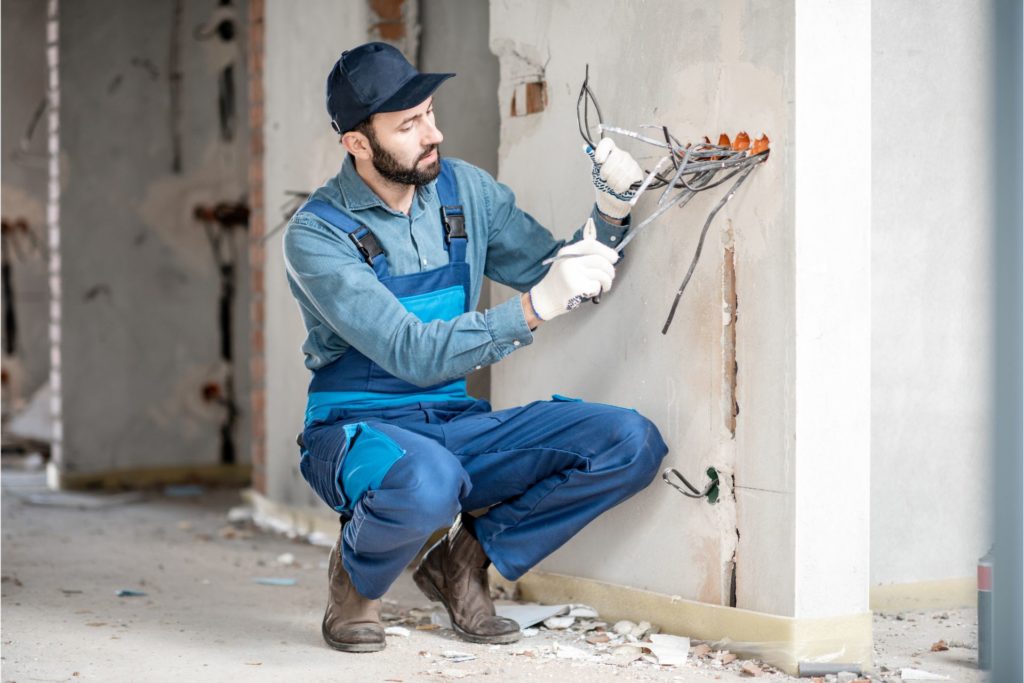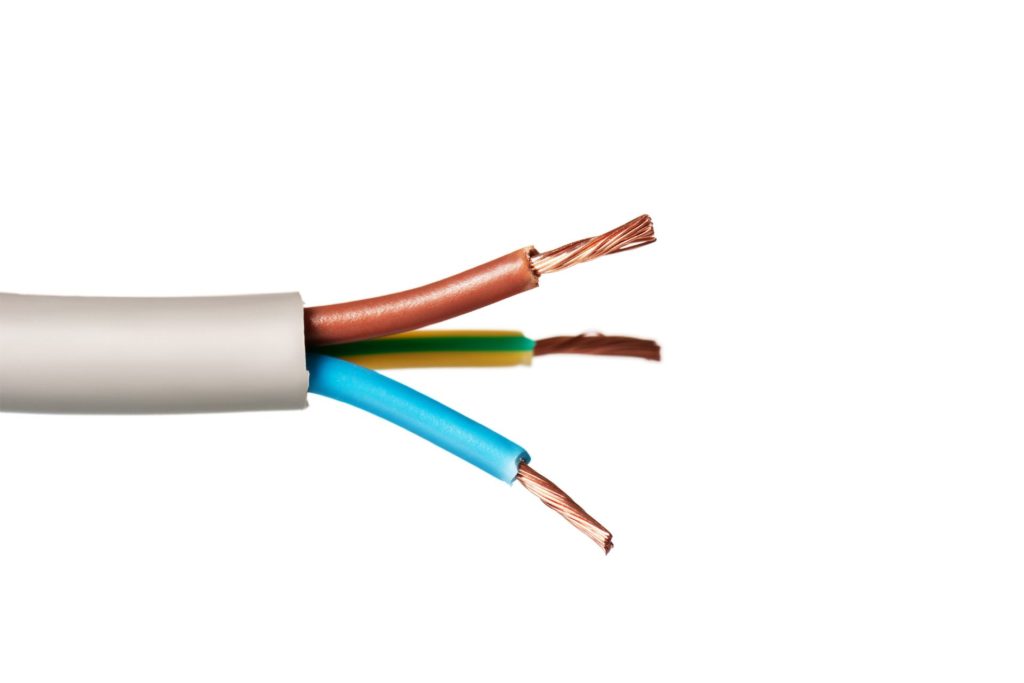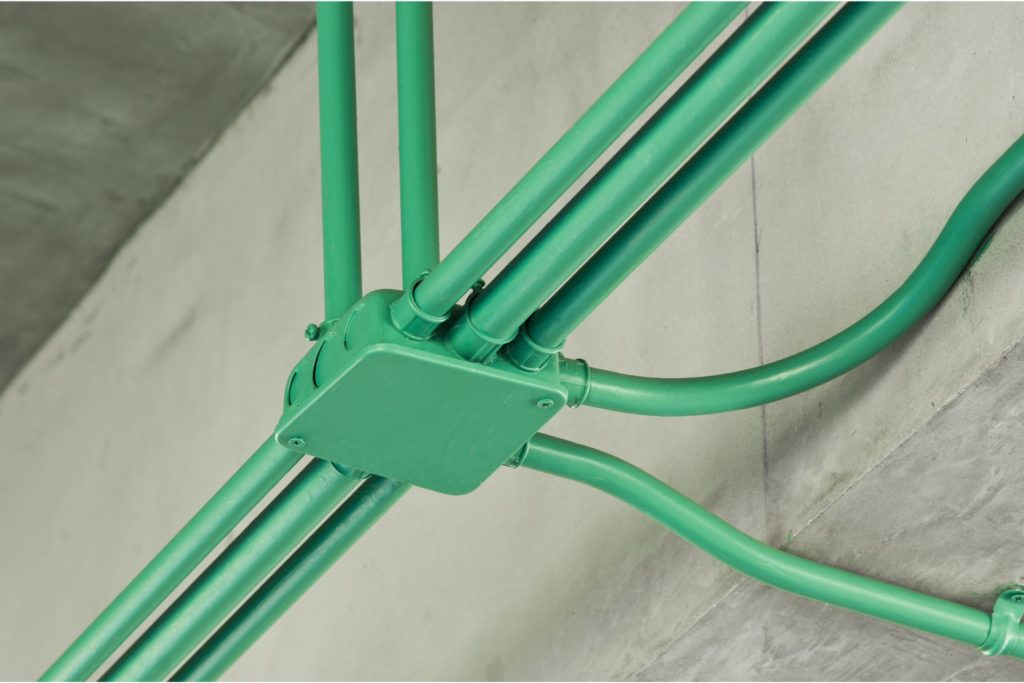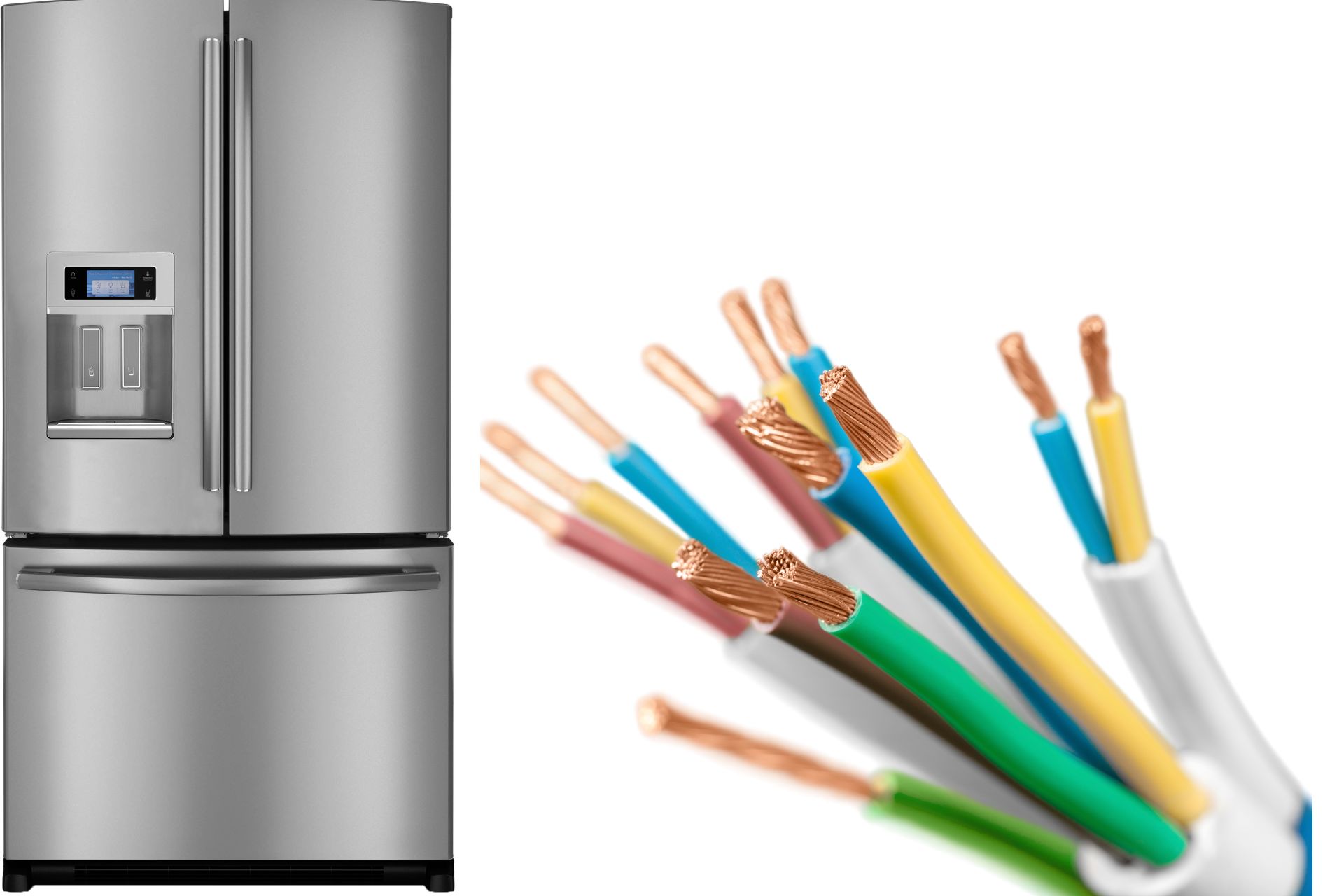You don’t want to saddle a refrigerator with a small wire. Anyone that has undersized their wires in the past will warn you against the practice because it always leads to trouble. Refrigerators are particularly dangerous because they use a lot of electricity. Therefore, you could kill someone by using the wrong gauge. But that raises a question.
What Gauge Wire Do I Need For A Refrigerator?
On average, the refrigerator uses 350-800 watts of electricity. Considering 110V, 350W refrigerator requires 18 gauge wire while 800W refrigerator requires 14 gauge wire.
Average Wire Size For Refrigerator
| Watt | Voltage | Wire Size |
| 350 W | 110 V | 18 Gauge |
| 800 W | 110 V | 14 Gauge |
Cables have the gauge on the jacket to simplify the process of identifying the wire size. You have to determine the wire size before proceeding because it influences the conductor’s capacity.
You don’t have to use the gauge. Some people want to know the diameter of the conductor in mm2. But the gauge makes more sense to laypeople. They don’t want to perform unnecessary conversions.
I want you to match the wire size to the electrical demands of the appliance. And this is why you shouldn’t be so quick to assume that a refrigerator can run on 14AWG.
That could be true for some appliances but not others. The refrigerator’s energy usage will determine the gauge it requires. Some fridges will run smoothly on 14AWG. Others will melt the 14AWG conductors.
Therefore, before identifying the wire gauge, start by finding the fridge’s electrical draw:
1). Every refrigerator comes with a plate or label showing the wattage. Look for this label. You can use one of the many calculators on the internet to convert the units to amps. Some refrigerators will show kWh instead of watts.
2). If you can’t find the label, look for the serial number and send it to the manufacturer. They will use the serial number to identify your model and its wattage.
Some manufacturers will help you even when you can’t find the serial number. All they need is a picture of the appliance. Although, don’t expect every manufacturer to accommodate your situation. Some of them may insist on a serial number.
3). Have you checked the manual? Some people will encourage you to use a KWH meter, but you don’t have to waste money on the device when you have the manual.
It will show you the specs of the refrigerator and recommend a wire size. Some manuals will encourage you to stick to a specific brand, but that isn’t necessary where electrical conductors are concerned.
Yes, the manufacturer knows best. However, they also want to make a profit. They don’t want you to buy from other companies. You should take some of their advice with a grain of salt.
Also, remember that refrigerators cycle on and off. They are not always on. A refrigerator pulls a lot of electricity when it cycles on.
It will exceed the wattage you associate with the appliance. For that reason, avoid wires that match the exact rating of the refrigerator. A conductor that accommodates the fridge when it runs normally can melt when that same appliance cycles on.
This is why electricians pay close attention to the duty cycle. This is also the reason why experts encourage homeowners to leave decisions of this sort in the hands of a licensed electrician.
What To Look For While Choosing The Right Wire For Refrigerator?
Refrigerators require a dedicated 20A circuit. This should give you an idea of the amount of electricity they use. You have to select the appropriate gauge to prevent fires from breaking out.
The refrigerator’s wattage will guide you. The more powerful the appliance, the thicker the conductor. You don’t have to calculate the gauge. The NEC’s tables will tell you.
They show the various conductor sizes and related ampacities. Naturally, refrigerators use wattage instead of ampacity. But you can convert the watts to amps.
Compare the appliance’s amps to the information in the NEC’s tables to find the appropriate wire gauge. Where possible, get the next highest gauge.
For instance, if the appliance requires 10AWG, get 8AWG, especially if the fridge uses a lot of electricity whenever it cycles on.
Finding the correct wire for a refrigerator is not always easy. You have to consider these factors:
1). Longer The Distance Thicker The Wire

How many feet will the cable cross? The distance affects the length, and the length influences the resistance. A 10WG conductor that operates a refrigerator over 15 feet can easily catch fire if you extend the distance by 100 feet.
Therefore, remember that long conductors can transmit fewer amps than their shorter counterparts. But what if you need a long wire?
What if shorter wires won’t cut it? Get a higher gauge. Long cables are dangerous because they increase the resistance, and a high resistance raises the voltage drop and amount of heat generated.
Thicker wires have lower resistance. They can transmit the current you need without raising the heat generated and voltage drop.
2). Gauge Changes With Installation Method

How do you plan to install the wire? Will you lay it bare on the ground, bury it behind the wall, or use a conduit? The gauge affects the installation methods. Thicker cables can accommodate more electricity. However, they are also less flexible.
It is harder to pull a cable with a higher gauge through a conduit. Therefore, you can change the gauge to accommodate the installation method or alter the installation method.
3). Material – The Best Is Copper

You have to choose between aluminum and copper. Copper is the obvious choice because it has better conductivity and more impressive thermal properties. But copper is only feasible over short distances.
The material is expensive, which is why homeowners gravitate towards aluminum. Yes, it has low conductivity, but you can overcome that weakness by increasing the gauge.
Aluminum conductors with a higher gauge can rival copper wires with a lower gauge. Additionally, aluminum is lighter and easier to install. Then again, copper is more durable and less likely to break when you pull it through a conduit.
4). Environment/Temperature Matters

Will you run the wires through a conduit? If you do, the temperature will present a challenge because pipes are not adequately ventilated.
The same problem will arise when you bury the cables. As you know, the current will generate heat as it passes through the conductors. Those conductors are more likely to overheat if the ambient temperature is high.
The layperson doesn’t expect the temperature to influence the gauge, but it does. Higher gauges are more durable. You can also get them in higher temperature ratings that can withstand more heat without melting.
5). Check The Load

What is the load size? The gauge should match the load. I want you to place fridges and freezers on dedicated 20A circuits. But many people operate their refrigerators on shared circuits.
Do you want the wires to accommodate the refrigerator and nothing else? If so, determine the wattage of the fridge. If you expect multiple devices to use the same circuit as the fridge, calculate the total wattage of the devices and find a gauge that can withstand their combined load.
If you want to run the refrigerator through an extension cord, apply the same rationale. Get an extension cord whose gauge can carry the combined load of all the appliances.
Extension cords and power trips are a bad idea, but people use them all the time. If the cord is thick enough, it can run a fridge without overheating and starting a fire.
What Happens If I use Thin Wire For Refrigerator?
Thin wires are fine if you have a low-wattage refrigerator. Thin cables are only problematic when you force them to transmit so much electricity that they overheat.
But if the refrigerator’s electrical needs are lower than the capacity of the wire, it will survive. If the thin wire’s gauge is too low to run the appliance, it will start a fire.
What Happens If I use Thick Wires?
Nothing happens. Thick wires are safe. In fact, the thicker the wire, the better off you are. A thick wire has low resistance, which is why it can carry as much electricity as you need without overheating.
But thick wires are expensive and difficult to install. You should only use them if you don’t have a choice.

